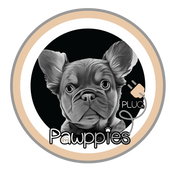Welcome to Pawppiesplug - Caring for Your New Toy or Mini Poodle Puppy
Congratulations on welcoming a Toy or Mini Poodle puppy into your home! At Pawppiesplug, we want to ensure that both you and your puppy have the best experience possible as you embark on this exciting journey. Here’s a comprehensive guide to help you care for your new furry friend, including tips on diet, grooming, training, and more.
Diet and Nutrition
Recommended Food: We recommend continuing the diet we’ve started your puppy on: Acana Puppy Recipe (Chicken and Turkey). This food is specifically formulated for puppies and provides the essential nutrients they need for healthy growth and development. Switching diets suddenly can upset their stomach, so it's best to keep them on this diet unless advised otherwise by your vet.
Feeding Schedule:
- Puppies (8-16 weeks): Feed 3-4 small meals per day.
- Portion Size: Follow the feeding guidelines on the food packaging based on your puppy's weight and adjust as they grow.
Treats:
- Choose high-quality treats made for puppies. Look for options with natural ingredients.
- Avoid giving table scraps or treats high in sugar or artificial preservatives.
What NOT to Feed Them:
- Chocolate, grapes, raisins, onions, garlic, and anything containing xylitol (a sweetener) are toxic to dogs.
- Avoid feeding them bones, which can splinter, and fatty or salty foods.
Bathing and Grooming
Bathing:
- How often: Bathe your puppy every 3-4 weeks or when they get dirty.
- Use a gentle puppy shampoo to avoid irritating their skin.
Grooming:
- Brushing: Poodles have curly coats that can easily mat, so brush them at least 3-4 times a week.
- Professional Grooming: It’s important to take your poodle to a professional groomer for a haircut and nail trimming every 6-8 weeks.
- Ears and Teeth: Clean their ears regularly to prevent infections, and brush their teeth at least 2-3 times a week to maintain good oral health.
Potty Training
Start potty training as soon as your puppy arrives home. Consistency and patience are key.
- Crate Training: Use a crate as a safe space and help establish a bathroom routine.
- Frequent Breaks: Take your puppy outside frequently, especially after meals and naps, and reward them with praise or treats when they go in the right spot.
- Consistency: Keep a consistent schedule, taking them to the same spot every time.
When to Go for Walks
Puppies can start going on walks once they've had all their vaccinations, which typically happens around 12-16 weeks old. Before this, avoid taking them to public places where they may be exposed to diseases.
- Start with short, gentle walks, and gradually increase the length as your puppy grows stronger.
- Use a comfortable, well-fitted harness and leash to keep them safe during walks.
Keeping Your Puppy Active
Poodles are energetic, intelligent dogs that need mental and physical stimulation.
- Playtime: Set aside time every day for active play with toys like balls, tug ropes, or puzzles.
- Training: Start basic obedience training early to keep their mind active. Commands like "sit," "stay," and "come" help build their skills.
- Interactive Toys: Puzzle toys can keep them entertained and mentally engaged.
Home Training and Hygiene
Home Training Tips:
- Safe Space: Provide your puppy with a designated sleeping area or crate where they can feel secure.
- Socialization: Introduce your puppy to different people, pets, and environments to help them become well-adjusted adults.
- Positive Reinforcement: Use praise and rewards to encourage good behavior. Avoid punishing your puppy for accidents or misbehavior, as this can lead to fear and anxiety.
Hygiene:
- Ears: Check and clean their ears regularly.
- Teeth: Regular brushing with dog-safe toothpaste is important to prevent plaque buildup.
- Nails: Trim their nails regularly, or let a groomer do it to avoid overgrown or painful nails.
What to Avoid
- Do not: Leave your puppy unsupervised for long periods. Poodles need attention and companionship.
- Do not: Use harsh training methods. Always train with kindness and patience.
- Do not: Overexercise them. Puppies should have moderate playtime and rest to avoid strain on their developing joints.
By following these tips, you’ll be on the path to raising a healthy, happy, and well-behaved puppy. At Pawppiesplug, we’re here to support you every step of the way. If you ever have questions, don’t hesitate to contact us.

Deja un comentario